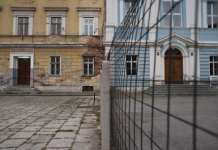Par Open Society Institute… Les musulmans font face à une discrimination inquiétante. Il est nécessaire de prendre rapidement des mesures efficaces et durables au niveau des villes, des pays et de l’UE pour lutter contre la discrimination religieuse, selon un rapport publié le 15 décembre par le projet At Home in Europe de l’Open Society Institute.
«L’Europe doit tenir ses promesses de société solidaire et ouverte», déclare Nazia Hussain, directrice du projet At Home in Europe. « L’interdiction récente des minarets en Suisse est un signe évident que le sentiment antimusulman est un véritable problème en Europe. Beaucoup d’européens pensent que l’identité religieuse est en quelque sorte un obstacle à l’intégration, alors que la majorité des musulmans interrogés s’identifient fortement à la ville et au pays dans lequel ils vivent. Le rôle de la ville est crucial pour lutter contre la discrimination mais également pour ouvrir la voie à l’intégration d’une population diversifiée ».« Muslims in Europe: A Report on 11 EU Cities » (Les musulmans en Europe: un rapport sur 11 villes de l’UE) est l’aboutissement de plus de 2.000 entretiens approfondis en tête à tête et plus de 60 groupes cibles de gouvernements locaux, de résidents et de dirigeants musulmans, d’ONG, d’universitaires, de journalistes et de militants dans des quartiers sélectionnés de sept pays : Amsterdam, Rotterdam, Anvers, Berlin, Hambourg, Copenhague, Leicester, Londres, Marseille, Paris et Stockholm. Les rapports individuels des 11 villes, qui seront publiés début 2010, soulignent des exemples positifs de changement au niveau local et analysent la manière dont les autorités abordent les défis liés à l’intégration dans des secteurs tels que l’éducation, l’emploi, la santé et les média.
Environ 20 millions de musulmans vivent dans l’Union européenne, principalement dans les capitales et grandes villes industrielles. On y trouve des populations diversifiées et en pleine croissance ainsi que des migrants récemment arrivés. Bien que la majorité des musulmans fasse partie intégrante du tissu social de leurs villes depuis longtemps, beaucoup sont encore l’objet de discrimination et de méfiance. Cette situation complexe met l’Europe face à l’un de ses plus importants défis : comment garantir efficacement l’égalité des droits et la cohésion sociale dans un climat de tension politique et sociale, de récession économique mondiale et de diversité en pleine expansion.
«Très peu de données officielles sont disponibles sur les populations musulmanes et minoritaires d’Europe. Ce que nous avons est anecdotique ou extrapolé, donne une image erronée des communautés musulmanes et des minorités en Europe et entraîne l’incompréhension des expériences et des inquiétudes de ces communautés, a déclaré Mme Hussain. Ces travaux apporteront de nouvelles données sur la situation quotidienne des communautés musulmanes et des recommandations concrètes pour améliorer les conditions de vie. Ils laissent également entrevoir la manière dont les communautés, indépendamment de la foi, ont sensiblement les mêmes préoccupations. La différence réside dans la manière selon laquelle elles sont traitées et envisagées.»
Le rôle des médias (Extrait du rapport, chapitre 10, version anglaise)
« (…) Media consumption, where the purpose is to understand and seek information about issues and events beyond an individual’s immediate circle of family and friends, may be viewed as an act of citizenship, because it suggests concern about the local area, the city, the state and internationally. The media therefore both reflect and influence societal attitudes towards Muslims and shape the space in which policies and initiatives to support social, economic and political inclusion take place. A group will feel excluded if its members are invisible in the public space or where public discourse, including representation by the media, is stereotyped and distorted in a way that is demeaning. The media are not, of course, a monolithic entity but consist of a broad range of producers and consumers, reflecting diverse views and understanding of Muslim communities.
This section focuses on respondents views of the representation of Muslims in the media and their impact on social cohesion and inclusion. It explores how Muslims have responded to increased media focus on them, and highlights initiatives aimed at supporting Muslims’ engagement with the media and increasing their involvement in media production. It also draws on discussions of the media in focus groups and stakeholder interviews and refers to the broader research literature on minorities and the media.
Professor Stuart Hall argues that “the mass media”, in particular national print and television news, “play a crucial role in defining the problems and issues of public concern. They are the main channels of public discourse in our segregated society. They transmit stereotypes of one group to other groups. They attach feelings and emotions to problems. They set the terms in which problems are defined as ‘central’ or ‘marginal’”.
Groups can be stereotyped through under-representation, overrepresentation or misrepresentation. Thus, “a group of people can be marginalised by their portrayal as an unrepresentative minority or denigrated by being presented as abnormal and peculiar, or excluded by only appearing in the media when they present a problem”.
Research on media portrayals of Muslims finds that coverage is generally negative. A study of news press coverage of Islam in the UK revealed that even before 2001 there was an underlying discourse in which Islam was presented as a threat to British society and its values, and Muslims were seen as deviant, irrational, different and unable to fit into life in the UK. Research in Sweden also found that the majority of television news reports between 1991 and 1995, in which Islam was mentioned, related to violent events.
Since September 2001, the coverage of Muslims has been dominated by security and terrorism. There is particular criticism of the gap between the scale of coverage given by newspapers to arrests connected to terrorism and the lack of coverage when arrested individuals are subsequently released without charge. Analysis of Danish news media found that Muslims also face stereotyping through culturalist interpretations of crimes where the perpetrator is Muslim, that is, a tendency to explain crimes committed by Muslims by reference to their religion.
A review of British media coverage of Muslims since 2000 found that “the bulk of coverage of British Muslims – around two thirds – focuses on Muslims as a threat (in relation to terrorism), a problem (in terms of differences in values) or both (Muslim extremism in general)”. It noted that 2008 was the first year in which “the volume of stories aboutreligious and cultural differences (32 per cent of stories by 2008) overtook terrorism related stories (27 per cent by 2008)”.
There are, however, indications that media coverage of Muslims and Islam is improving. Analysis of Dutch media reporting after the murder of Theo van Gogh suggests that in the weeks following the assassination the focus was more nuanced than the initial reaction, stressing socio-economic issues rather than questions of religious and cultural compatibility. A poll taken a year after the van Gogh assassination found that negative views of Muslims had not increased, but that among those with a negative view their negative evaluation was more intense. Analysis of German coverage also reveals increased sophistication and subtlety in the coverage of Muslimcommunities. From the focus groups and stakeholder interviews it is clear that Muslim respondents were very concerned about the representation of Muslims in the media (…) ».
• Lire la suite du chapitre consacré aux médias
• L’intégralité du rapport Muslims in Europe: A Report on 11 EU Cities (Les musulmans en Europe : un rapport sur 11 villes de l’UE) est disponible en ligne sur : www.soros.org/initiatives/home
L’Open Society Institute (OSI) est une fondation privée dont le but consiste à promouvoir la gouvernance démocratique, les droits humains, ainsi que les réformes économiques, sociales et juridiques en exerçant son influence sur les politiques publiques.
Grotius International
Derniers articles parGrotius International (voir tous)
- 54h pour innover pour l’Afrique – 13 juin 2019
- Guide Pratique Des Associations Et ONG Internationales Au Togo – 26 avril 2019
- Paul Salvanès, « La haine qu’il faut » – 13 mars 2018







